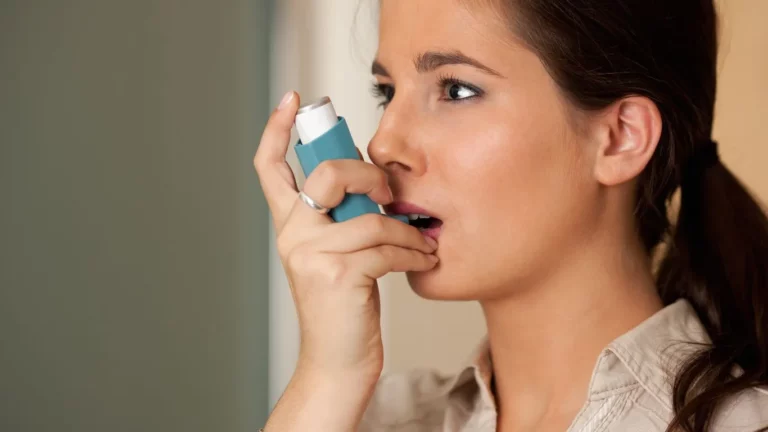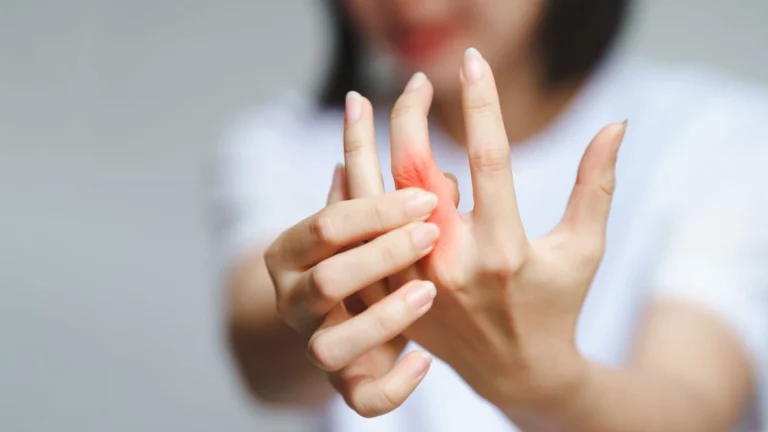Can GERD Cause Anxiety Symptoms? The Shocking Link You Need to Know!
Can GERD cause anxiety symptoms? Oh, you bet. And I’ve seen it firsthand. Working as a Medical Assistant in a busy Gastroenterology Clinic, I’ve met countless patients who come in for acid reflux but end up venting about their creeping anxiety. Some even worry they’re having a heart attack because of the chest pain. But here’s the thing—GERD (Gastroesophageal Reflux Disease) and anxiety are more connected than most people realize. And if you’ve ever felt a sudden wave of panic after a bout of acid reflux, you’re not imagining it.
Understanding the GERD-Anxiety Connection

Let me tell you about a patient I’ll call “Sarah.” She came into the clinic convinced something was seriously wrong with her heart. After several ER visits and normal test results, her cardiologist referred her to us. She was shocked when the doctor diagnosed her with GERD. She couldn’t believe stomach acid could cause chest pain, let alone trigger anxiety. But once we explained the connection, it all started making sense.
How GERD Triggers Anxiety Symptoms
GERD isn’t just about heartburn. The acid creeping up into your esophagus can irritate the vagus nerve, which plays a huge role in regulating your heart rate and stress response. When that nerve gets aggravated, it can set off a cascade of symptoms that feel eerily like anxiety:
- Chest pain that mimics a heart attack
- Shortness of breath, making you feel like you can’t get enough air
- A racing heart or palpitations
- Dizziness or a sudden feeling of being unsteady
- Insomnia—because who can sleep when it feels like your chest is on fire?
Now, imagine experiencing these symptoms out of the blue. You don’t know it’s GERD causing the chaos, so naturally, your mind jumps to the worst-case scenario. Boom—full-blown panic attack.
The Vicious Cycle: GERD Causes Anxiety, Anxiety Worsens GERD

Here’s where things get frustrating. Anxiety doesn’t just happen because of GERD—it can make GERD worse. When you’re anxious, your body produces more stress hormones like cortisol, which can:
- Slow down digestion, keeping stomach acid in place longer
- Cause muscle tension, making reflux symptoms feel more intense
- Trigger hyperawareness, so you focus more on every little twinge in your chest
Basically, stress and GERD feed off each other in a never-ending loop. I’ve had patients tell me they didn’t notice their reflux until they started feeling anxious, and vice versa. It’s a chicken-and-egg situation.
Why GERD-Related Anxiety is Often Misdiagnosed

One of the biggest issues with GERD-related anxiety is that it often gets misdiagnosed. Patients show up at their doctor’s office with symptoms like dizziness, chest pain, or palpitations, and they get labeled with panic disorder or heart issues. It’s not until they end up in a gastroenterology clinic—after a long, frustrating journey—that they finally get the right diagnosis.
Signs Your Anxiety Might Be GERD-Related
If you’ve been struggling with anxiety and suspect GERD might be playing a role, ask yourself:
- Do your symptoms get worse after eating?
- Does lying down make you feel more uncomfortable?
- Have you ever woken up gasping for air or with a burning sensation in your throat?
- Does anxiety seem to come out of nowhere, especially after meals?
If you’re nodding along, GERD might be the hidden culprit behind your anxiety episodes.
How GERD Symptoms Can Mimic Anxiety Disorders

Now, here’s where things get really tricky—GERD doesn’t just trigger anxiety; it can mimic anxiety disorders. I’ve seen patients completely convinced they have panic disorder, only to later realize it was their acid reflux playing tricks on them.
Let’s break this down. GERD can cause:
- Chest tightness and discomfort—which can feel exactly like an anxiety attack.
- Heart palpitations—often mistaken for an arrhythmia or panic episode.
- Shortness of breath—because acid irritation can cause airway spasms.
- Dizziness or lightheadedness—which fuels feelings of fear and panic.
Now imagine experiencing those symptoms without knowing GERD is the culprit. Naturally, your brain jumps to the worst-case scenario: “Am I dying? Is this a panic attack? What if it happens again?”
And just like that, you’ve entered a cycle of health anxiety. The more you focus on the symptoms, the worse they feel. The worse they feel, the more anxious you become. And that anxiety, in turn, aggravates GERD even more.
Why Traditional Anxiety Treatments Might Not Work

Here’s something I’ve heard over and over again: “I’ve tried therapy, meditation, and even medication, but my anxiety won’t go away.” And when I ask these patients about their digestive health, they suddenly realize they’ve been battling reflux for years.
The problem? If GERD is the root cause, treating anxiety alone won’t fix it. Think about it:
- If stomach acid is triggering chest discomfort and shortness of breath, no amount of deep breathing will stop the symptoms.
- If your vagus nerve is irritated, anti-anxiety meds might reduce the panic—but they won’t stop the reflux.
- If your body is in a state of inflammation from acid exposure, stress-reduction techniques won’t heal the esophagus.
That’s why so many people feel stuck. They’ve been treating the anxiety, but they haven’t addressed the real problem—GERD.
How to Tell If GERD Is Behind Your Anxiety Symptoms

So, how can you tell if your anxiety is actually GERD-related? Here are a few key signs:
- Symptoms get worse after eating. If you feel more anxious after meals, reflux might be the trigger.
- Lying down makes it worse. Anxiety alone doesn’t usually flare up when you’re relaxing, but GERD sure does.
- Burping or drinking water eases the discomfort. If sipping water or standing up makes the symptoms subside, it’s probably GERD-related.
- You wake up with a sore throat or bitter taste. That’s classic silent reflux.
- Antacids or acid reducers help. If popping a TUMS relieves the symptoms, you’ve got your answer.
Of course, I always recommend seeing a doctor to get a proper diagnosis. But if you’re nodding along to these signs, it’s worth investigating GERD as a possible anxiety trigger.
What You Can Do to Break the GERD-Anxiety Cycle
So, what’s the game plan? If GERD is fueling your anxiety, you need to tackle both issues at once. Here’s where I tell my patients to start:
1. Adjust Your Diet
There’s no way around it—certain foods make GERD worse. Common culprits include:
- Spicy foods (yes, that hot sauce obsession might be hurting you)
- Caffeine (I know, I know—losing coffee is rough)
- Carbonated drinks (bubbles make reflux worse)
- Fried and fatty foods (bad news for your esophagus)
Even small tweaks—like eating smaller meals and avoiding late-night snacks—can make a huge difference.
2. Manage Stress Without Triggering Reflux
Relaxation techniques are great, but some (like deep belly breathing) can actually push acid upward. Instead, try:
- Gentle walks after meals to aid digestion
- Sleeping on an incline (a wedge pillow works wonders)
- Acupuncture or vagus nerve stimulation to help regulate digestion
3. Consider Medication or Natural Remedies
For some, over-the-counter meds like proton pump inhibitors (PPIs) or H2 blockers provide relief. But if you prefer a natural route, options like:
- Slippery elm to coat the esophagus
- Licorice root (DGL) to reduce acid production
- Aloe vera juice to soothe irritation
…can all be game changers.
4. Get a Proper Diagnosis
If your symptoms persist, it’s crucial to work with a gastroenterologist. They might recommend tests like an endoscopy or pH monitoring to assess your esophagus.
The good news? Once GERD is under control, anxiety symptoms often improve dramatically. I’ve seen patients go from daily panic attacks to feeling like themselves again—just by managing their reflux.
How Long Does It Take to Heal GERD-Induced Anxiety?

One of the most common questions I get from patients is, “How long will it take for my anxiety to improve once I treat my GERD?” And honestly? The answer varies. It depends on factors like the severity of your reflux, how long you’ve been experiencing symptoms, and how well you follow a treatment plan.
For some, relief comes within a few weeks of managing their diet and taking medications. Others may need months of consistent lifestyle changes to see real progress. But here’s the key takeaway: if GERD is the root cause of your anxiety, treating it properly will naturally reduce those overwhelming feelings of panic.
I’ve had patients tell me they went from daily anxiety attacks to barely any episodes once they got their reflux under control. That alone shows how powerful this connection is.
Success Stories: Real People, Real Relief

Let’s talk about a patient I’ll call Jake. He was in his early 30s, super fit, but constantly battling what he thought were panic attacks. The guy had seen cardiologists, neurologists, and even tried therapy—but nothing seemed to help.
Then, one day, during a routine check-up, he casually mentioned having heartburn. That was our lightbulb moment. We tested him for GERD, and sure enough, his acid reflux was through the roof. After just six weeks of following a reflux-friendly diet, sleeping on an incline, and using a proton pump inhibitor (PPI), his “anxiety attacks” were nearly gone.
Another patient, Lisa, had struggled with shortness of breath and dizziness for years. She had no idea her acid reflux was silently creeping into her airways at night, triggering symptoms that felt just like anxiety. A few months of managing her GERD, and she finally felt like herself again.
When to See a Doctor
Now, while it’s great to explore natural ways to manage GERD and anxiety, it’s crucial to know when it’s time to see a professional. If you’re experiencing any of the following, don’t hesitate to seek medical help:
- Severe or persistent chest pain (always rule out heart issues first)
- Difficulty swallowing or feeling like food is getting stuck
- Unexplained weight loss or lack of appetite
- Bloody or black stools (this could indicate internal bleeding)
- Severe shortness of breath that doesn’t improve with GERD treatment
A gastroenterologist can run tests like an endoscopy or pH monitoring to determine the severity of your condition and recommend the best course of action.
Final Thoughts: Breaking Free from the GERD-Anxiety Trap
At the end of the day, understanding the connection between GERD and anxiety is life-changing. I’ve seen so many people go through unnecessary stress, thinking they have a serious heart or mental health condition, when in reality, their digestive system was the real troublemaker.
If you’ve been battling unexplained anxiety, don’t ignore the possibility that acid reflux might be involved. Try tracking your symptoms, adjusting your diet, and making lifestyle changes. If your anxiety starts to improve as your reflux gets better, you might have just found the answer you’ve been looking for.
References
- Healthline – Gastroesophageal Reflux Disease (GERD) Overview
- NCBI – The Relationship Between GERD and Anxiety
- WebMD – Anxiety and Digestive Health
Disclaimer
Important: This article is for informational purposes only and should not be considered medical advice. If you are experiencing severe symptoms, consult a healthcare professional for a proper diagnosis and treatment plan.

Camellia Wulansari is a dedicated Medical Assistant at a local clinic and a passionate health writer at Healthusias.com. With years of hands-on experience in patient care and a deep interest in preventive medicine, she bridges the gap between clinical knowledge and accessible health information. Camellia specializes in writing about digestive health, chronic conditions like GERD and hypertension, respiratory issues, and autoimmune diseases, aiming to empower readers with practical, easy-to-understand insights. When she’s not assisting patients or writing, you’ll find her enjoying quiet mornings with coffee and a medical journal in hand—or jamming to her favorite metal band, Lamb of God.







